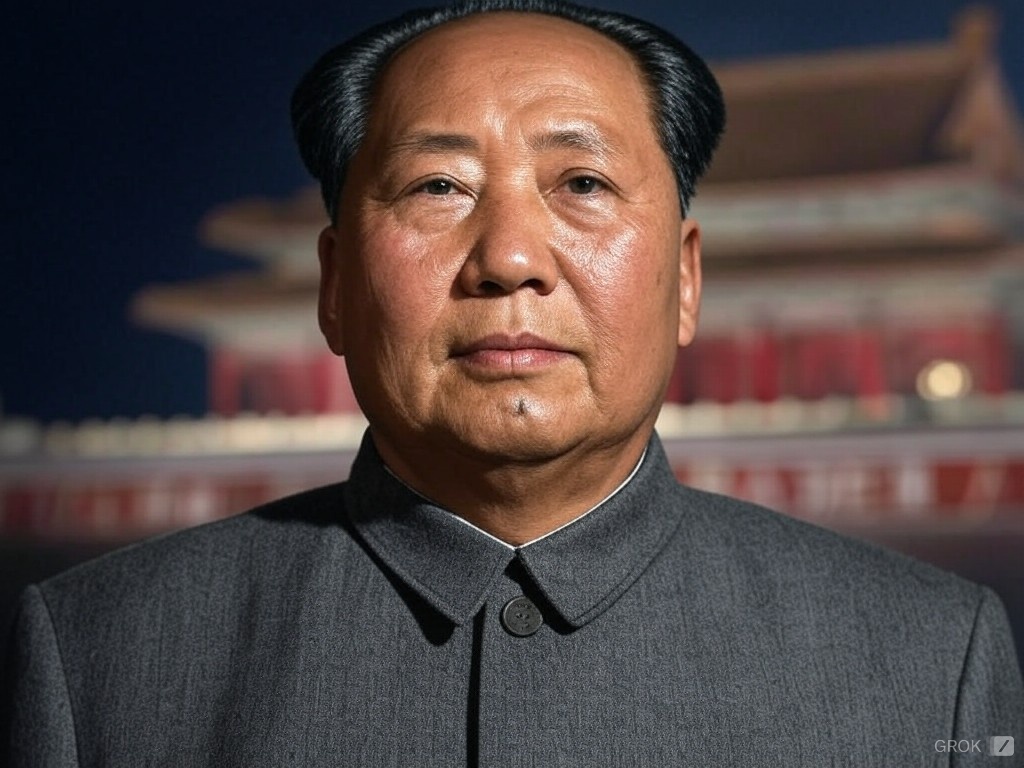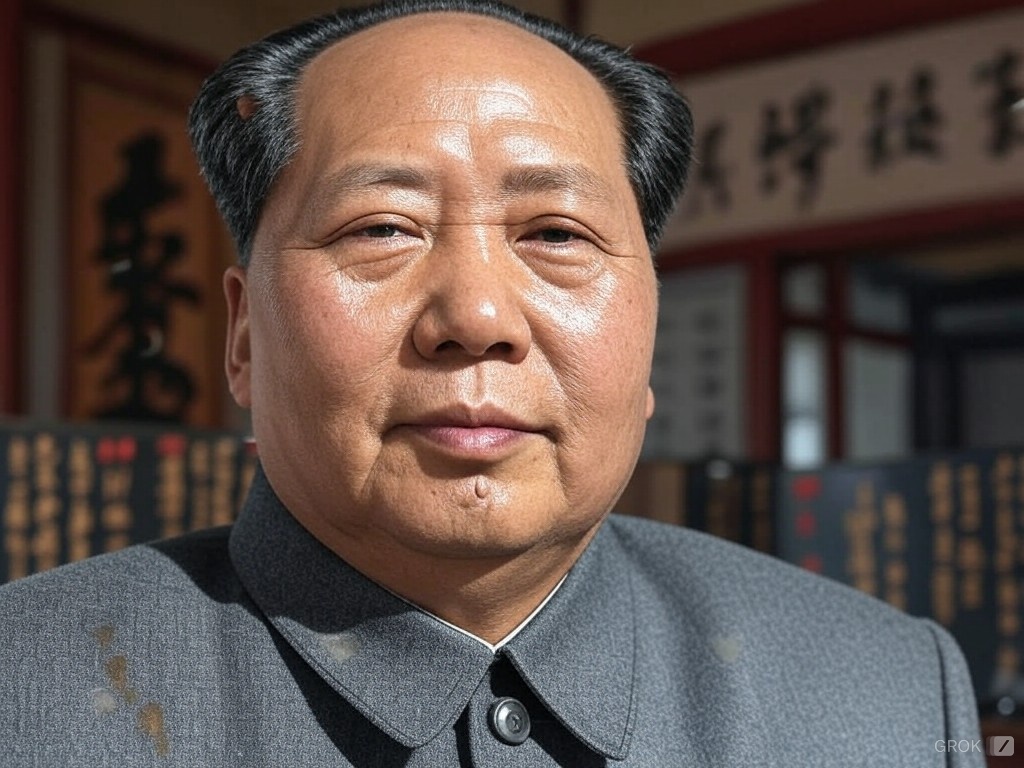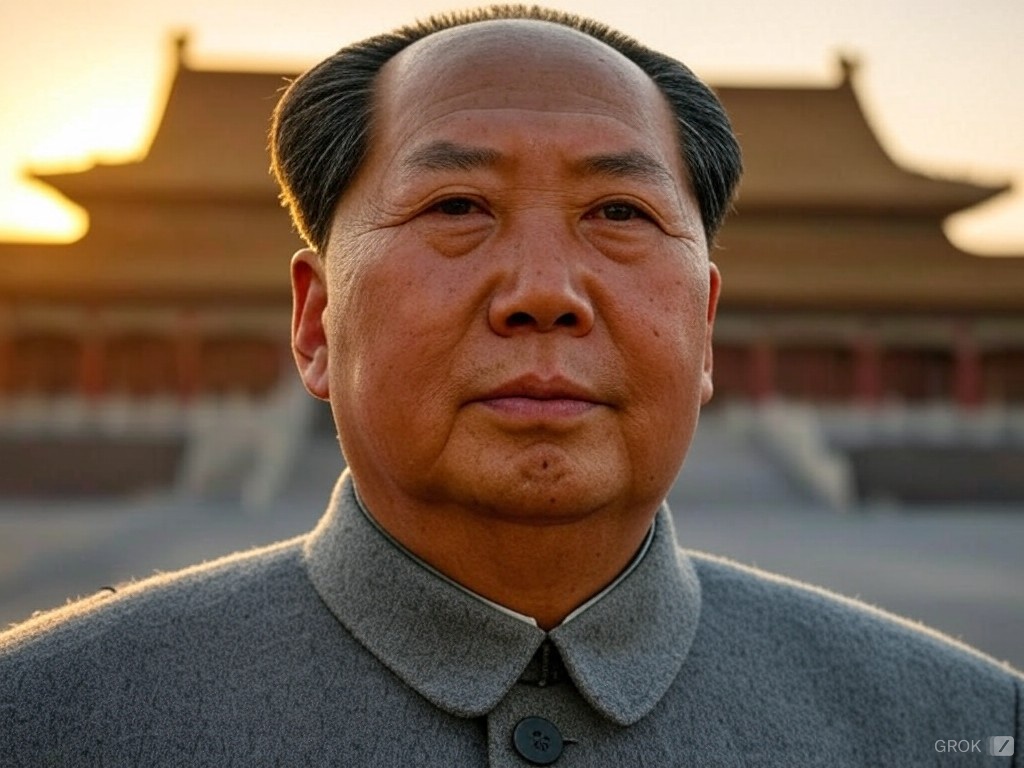Mao’s Legacy in Combating Imperialism
Mao Zedong is often remembered as a revolutionary who reshaped the course of Chinese history, but his influence extended far beyond China’s borders. As a steadfast opponent of imperialism, Mao’s philosophy and leadership inspired countless anti-colonial movements and leftist revolutions across the globe. His strategies, writings, and unwavering commitment to combating foreign domination made him a central figure in the global struggle against imperialist exploitation.
From leading China’s resistance against Japanese invasion to providing ideological and material support to liberation movements worldwide, Mao’s legacy as an anti-imperialist leader is both profound and enduring. In a world still grappling with neo-colonialism and economic domination by powerful nations, Mao’s teachings offer a blueprint for resistance that remains relevant today.
This article explores Mao’s contributions to the anti-imperialist cause, his global influence on revolutionary movements, and the lessons his legacy offers to modern struggles against imperialism.
Imperialism as the Pinnacle of Capitalism
To understand Mao’s anti-imperialist legacy, it is essential to ground it in Marxist theory. According to Lenin, imperialism represents the highest stage of capitalism, characterized by the export of capital to exploit weaker nations and the creation of global monopolies. Mao built on Lenin’s framework, arguing that imperialism was not merely an economic phenomenon but a deeply political and cultural one. For Mao, imperialism thrived on the domination of weaker nations, perpetuating inequality and suppressing the self-determination of oppressed peoples.
Mao’s analysis of imperialism was not purely theoretical—it was informed by China’s own experience of subjugation by imperial powers. The Opium Wars, the Treaty of Nanking, and the division of China into spheres of influence by Western and Japanese imperialists were fresh in Mao’s historical memory. These events underscored the need for a revolutionary movement that could not only overthrow feudal and bourgeois rule within China but also resist the external forces of imperialism.
Mao’s Leadership During the Anti-Japanese War
Mao’s anti-imperialist credentials were cemented during the Second Sino-Japanese War (1937–1945), when the Chinese Communist Party (CCP) became a leading force in resisting Japanese aggression. While the Nationalist Kuomintang (KMT) initially bore the brunt of the fighting, the CCP’s disciplined guerrilla warfare tactics and its focus on mobilizing the rural population played a crucial role in undermining Japanese occupation.
Mao’s strategy during the war emphasized the importance of combining military resistance with political education. The CCP’s guerrilla units not only fought the Japanese but also worked to win the hearts and minds of the peasantry, spreading anti-imperialist propaganda and organizing rural communities. This dual approach ensured that the CCP emerged from the war with increased legitimacy and popular support, positioning it as the vanguard of China’s anti-imperialist struggle.
The war against Japan also highlighted Mao’s belief in the importance of self-reliance. Unlike the KMT, which relied heavily on foreign aid, Mao emphasized the need for China to resist imperialism on its own terms. This principle of self-reliance would later become a cornerstone of Maoist ideology, influencing revolutionary movements worldwide.
Mao’s Role in the Global Anti-Imperialist Movement
Mao’s anti-imperialist legacy is perhaps most evident in his influence on liberation movements in Asia, Africa, and Latin America. As the leader of the People’s Republic of China, Mao positioned China as a champion of the oppressed and a supporter of anti-colonial struggles.
One of Mao’s most significant contributions to the global anti-imperialist movement was his theory of “people’s war.” Rooted in his experience during the Chinese Civil War and the Anti-Japanese War, this strategy emphasized the importance of mobilizing the rural population and using guerrilla tactics to undermine imperialist forces. Mao’s concept of people’s war resonated with revolutionary movements in countries like Vietnam, where the Viet Cong successfully employed similar strategies against American and French forces.
Mao’s support for anti-imperialist movements extended beyond ideological inspiration. Under his leadership, China provided material assistance, training, and political support to revolutionary groups around the world. From the African National Congress in South Africa to the Shining Path in Peru, Maoist principles became a guiding force for those fighting against colonial domination and capitalist exploitation.
The Bandung Conference and the Non-Aligned Movement
Mao’s anti-imperialist vision also found expression in China’s participation in the Bandung Conference of 1955. This historic gathering of Asian and African nations sought to promote solidarity among countries emerging from colonial rule and to chart a path independent of the Cold War blocs led by the United States and the Soviet Union. While Mao himself did not attend the conference, his influence was evident in China’s active role in promoting anti-imperialist cooperation.
The Bandung Conference marked the beginning of the Non-Aligned Movement, which sought to resist the pressures of Cold War superpowers and assert the sovereignty of newly independent nations. Mao’s emphasis on self-reliance and revolutionary solidarity provided a philosophical foundation for this movement, inspiring leaders like Kwame Nkrumah of Ghana and Ho Chi Minh of Vietnam to adopt similar principles in their struggles against neo-colonialism.
The Sino-Soviet Split and the Fight Against Revisionism
Mao’s anti-imperialist legacy is inseparable from his critique of Soviet “revisionism.” By the 1960s, Mao had grown increasingly critical of the Soviet Union’s approach to international relations, accusing it of betraying Marxist-Leninist principles by seeking détente with imperialist powers like the United States. Mao argued that the Soviet Union had abandoned its revolutionary mission in favor of coexistence with capitalism, a stance he viewed as a capitulation to imperialism.
The Sino-Soviet split had profound implications for the global anti-imperialist movement. While it weakened the unity of socialist states, it also positioned China as an alternative center of revolutionary thought and action. Mao’s insistence on maintaining a militant stance against imperialism resonated with many Third World leaders and movements, solidifying his status as a global symbol of resistance.
Mao’s Theoretical Contributions to Anti-Imperialism
Mao’s theoretical writings on imperialism continue to offer valuable insights for contemporary struggles. In works like On Contradiction and On Practice, Mao emphasized the interconnectedness of economic, political, and cultural oppression, arguing that imperialism could not be defeated through piecemeal reforms or isolated struggles. Instead, he advocated for a holistic approach that combined armed resistance with efforts to build new social and economic systems rooted in equality and self-determination.
One of Mao’s most enduring contributions is his concept of “contradiction.” He argued that imperialism creates internal contradictions within oppressed nations, such as the tension between feudal landlords and the peasantry or between comprador elites and the working class. For Mao, resolving these contradictions through revolutionary struggle was the key to achieving true liberation. This dialectical approach has influenced countless revolutionary movements, providing a framework for analyzing and confronting the complexities of imperialist domination.
Critiques and Controversies
While Mao’s anti-imperialist legacy is undeniably significant, it is not without its critiques. Some scholars and activists argue that Mao’s support for revolutionary movements was driven as much by geopolitical interests as by ideological commitment. China’s rivalry with the Soviet Union, for example, often shaped its alliances and interventions, raising questions about the purity of its anti-imperialist agenda.
Others point to the limitations of Maoist strategies in addressing the economic and social challenges faced by post-colonial nations. While Mao emphasized self-reliance, critics argue that his model of development often overlooked the complexities of integrating into a global economy dominated by capitalist powers. The failure of some Maoist-inspired movements to achieve sustainable development highlights the need for a more nuanced approach to anti-imperialism.
Lessons for Today’s Anti-Imperialist Struggles
Mao’s legacy offers both inspiration and cautionary lessons for contemporary struggles against imperialism. In an era marked by neo-colonial exploitation, corporate domination, and global inequality, Mao’s emphasis on self-reliance, grassroots mobilization, and ideological vigilance remains profoundly relevant. His critique of comprador elites and his insistence on revolutionary discipline provide valuable tools for analyzing the challenges faced by oppressed nations today.
At the same time, Mao’s legacy underscores the importance of adaptability and pragmatism. While his theories and strategies were effective in the context of mid-20th-century China, they must be reexamined and adapted to address the unique conditions of today’s world. This includes recognizing the role of technology, climate change, and global interdependence in shaping the dynamics of imperialism.
Conclusion
Mao Zedong’s commitment to combating imperialism was a defining feature of his revolutionary career and a cornerstone of his legacy. From leading China’s resistance against Japanese aggression to inspiring and supporting anti-colonial movements worldwide, Mao’s contributions to the global struggle against imperialist domination are both profound and enduring. His emphasis on self-reliance, grassroots mobilization, and ideological rigor continues to resonate with those fighting for liberation and equality.
While not without its critiques and contradictions, Mao’s anti-imperialist legacy offers invaluable lessons for modern revolutionaries. It challenges us to confront the complexities of imperialism with discipline, creativity, and a commitment to justice. As the world grapples with the ongoing realities of neo-colonialism and capitalist exploitation, Mao’s vision of a united, self-reliant, and equitable world remains a powerful guiding light.
Originally posted 2024-09-07 20:06:50.



